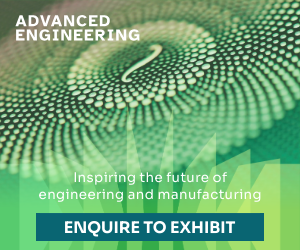euspen (the European Society for Precision Engineering and Nanotechnology), is in the process of finalising the organization of a Special Interest Group (SIG) meeting on advanced precision in additive manufacturing (AM) 16-18 September 2019. The SIG will this year be held in the Ecole Centrale de Nantes, Nantes, France, and represents the 6th time that euspen has joined forces with the American Society of Precision Engineering (ASPE) focussing in on important issues surrounding precision in AM.
For AM to become fully integrated as a production technology, the focus is necessarily on dimensional accuracy and surface quality, as when looking at any production part, accuracy and surface quality remain of paramount importance in the manufacturing process. The basic requirement is for extremely accurate parts or features that match as closely as possible the original design intent, the ability to do this influencing the acceptance and usefulness of a product for end-use applications.
There are multiple AM processes, and dimensional accuracy and surface finish is different on each, but there are a number of factors that are common to AM platforms when assessing accuracy and precision. For example, surface slope and build orientation have been shown to affect surface finish and dimensional accuracy across all AM platforms, and there is today a huge focus on techniques and Design for AM (DfAM) considerations that will optimise build outcomes.
Dimensional accuracy and surface finish pushes into perhaps the most talked about area in the AM sector, namely post-processing. This is a hot topic today, as for many applications, the requirement for time consuming, costly, and often manual post-processing to achieve the precision required for end-use products is often prohibitive. The demand is for fully automated, integrated, and highly accurate post processing technologies that provide the micron and sub-micron levels of accuracy and repeatability that can be achieved using traditional manufacturing processes.
At the euspen SIG, all such issues will be discussed and debated at what is billed as an extremely important networking and learning event for the AM sector and industry in general. euspen has as its primary focus the advancement of the arts, sciences and technology of precision engineering, micro engineering and nanotechnology to facilitate its exploitation by science and industry, and as such the focus on AM is entirely relevant as in more and more OEMs AM is either being used as or is being considered for true production applications.
euspen draws on experts from across all disciplines that need to be considered when looking at precision-related issues in a manufacturing environment. As with general precision engineering, when looking at precision issues related to AM, industry standards are vital, and discussion at the SIG will recognize that the use of AM for end-use parts requires a level of standardization that was not as important when the technology was almost entirely focused on prototyping. Standards need to embrace multiple AM platforms using radically different technologies and materials to produce parts, and must become application-oriented rather than technology oriented.
Effectively, standards allow engineers to design to a known set of parameters and build a level of trust in the fulfillment and manufacturing process. They are part of the necessary evolution of technology and are central to discussions at the SIG.
Issues related to metrology are also of central importance, both in-process metrology tools and tools that allow for validation and measurement of finished parts (direct from build or after post-processing) to prove the fulfilment of design intent. The goal with all metrology is to keep processes under tight control, therefore improving quality, reducing scrap rates, and enhancing environmental sustainability. For AM platforms, new solutions are needed to ensure optimization of the technology as a truly integrated production alternative.
The 16-18 September SIG will incorporate a half day of presentations from PAM2 (Precision Additive Metal Manufacturing). This project has received funding from the European Union’s Horizon 2020 research and innovation programme under the Marie Skłodowska-Curie grant agreement No 721383.
The local hosts and organising committee for the SIG are Prof. Alain Bernard from Ecole Centrale de Nantes; Dr David Bue Pedersen from Technical University of Denmark; Prof. Richard Leach from University of Nottingham; and Dr John Taylor from University of North Carolina at Charlotte. The AM SIG meeting chair is Prof. Richard Leach from University of Nottingham, and Dr John Taylor from University of North Carolina at Charlotte.





